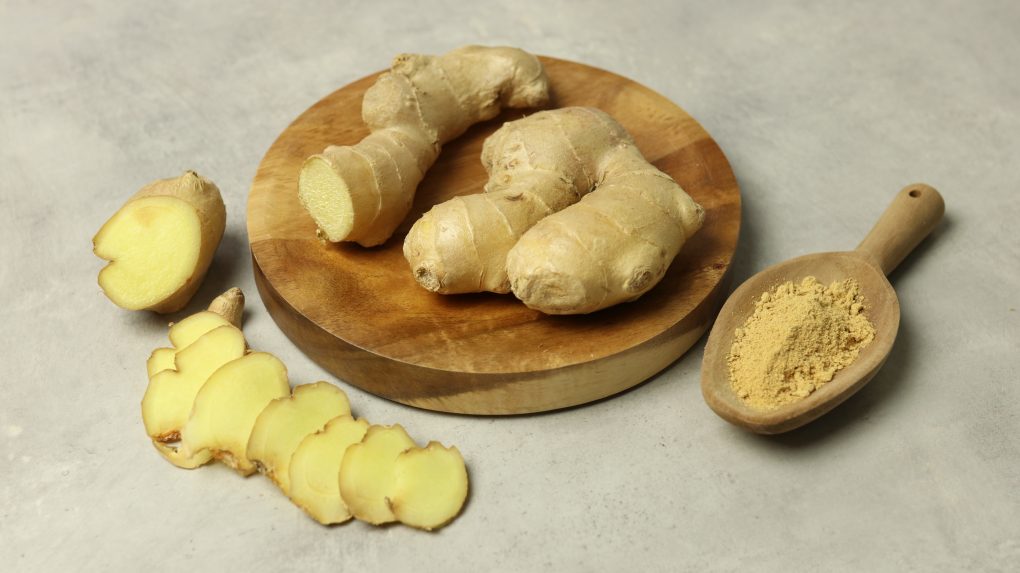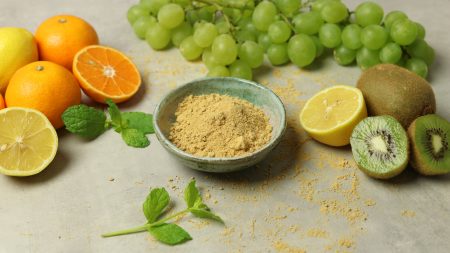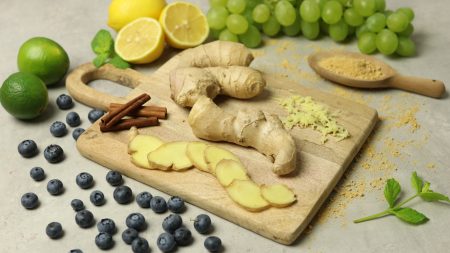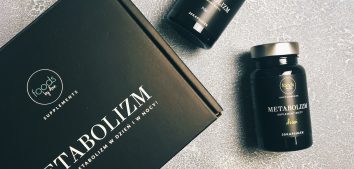
Ginger a Mysterious Spice – Medicine, Aphrodisiac, and More
Ginger – a spice that will stimulate metabolism, warm you up, and give an amazing aroma! It is characterized by many health-promoting properties, it is classified as an aphrodisiac, treated as a medicine, and an unusual spice. It can’t be missing on your plates either. Let’s take a look at the properties ginger has.
Ginger – a Secret Spice
Spices have been dominant in Polish cuisine for a long time, but one of the most famous is ginger (Zingiber officinale).
It belongs to the ginger family Zingiberaceae. The name comes from the Greek word zingiberis, which means “in the shape of a deer’s antler”. Ginger is mainly grown in China, Japan, and India, but it can also be found in South and West Africa, Barbados, Haiti, Taiwan, and Australia.
Ginger is sold raw as a beige-gray rhizome, as well as a dried and ground spice. Marinated ginger is also becoming more and more popular, e.g. used for sushi, as well as candied and in the form of preserves, teas, syrups.
Raw ginger is pale yellow, grainy, mealy and fibrous due to the presence of tufts of bast fibers. Essential oils and oleoresin are the main ingredients that contribute to the sharp, intense taste and smell of ginger rhizomes. The main carrier of the flavour is zingiberol, and gingerol, a pungent non-volatile substance, which is responsible for the characteristic pungent taste of ginger.
Ginger – an Extraordinary Cure in the Fight against Pathogens
The main components of ginger are gingerol and shogaol, which have antibacterial and antiviral properties. Thus, if you feel cold and weak, the first healthy idea to regenerate your body will be to eat at least grated ginger. You will see for yourself that it warms up the body very quickly, and at the same time fights pathogens.
Research studies show that ginger rhizome extract inhibits the growth of many bacteria, including: Escherichia coli, Staphylococcus aureus, Klebsiella pneumoniae, Pseudomonas aeruginosa, Listeria monocytogenes and Streptococcus spp.
The active ingredients of ginger act as immunomodulators, increasing the body’s immunity through cleansing properties, including the elimination of free radicals, but also diaphoretic, helping to fight microbes during colds or other infections.
Ginger Will Lower the Level of Glucose and Cholesterol
Many scientific data show the hypoglycemic properties of ginger, i.e. those that positively affect the reduction of blood glucose levels. There are a lot of mechanisms through which the compounds present in ginger may have a glucose-lowering effect. First of all, an increase in the sensitivity of tissues to insulin and a decrease in the absorption of glucose from the intestines are noted. What’s more, ginger components have an inhibitory effect on the activity of digestive enzymes, mainly pancreatic amylase.
Ginger has also been shown to reduce blood cholesterol levels. This rhizome can have a very positive effect on the improvement of lipid metabolism, not allowing the synthesis of LDL cholesterol. Therefore, if you are struggling with the problem of high cholesterol, including ginger in your diet will help you normalize its level, mainly the bad LDL fraction, as well as triglycerides.
Ginger for nausea
It is not without reason that pregnant women choose ginger infusions in the morning. Spice in the form of teas or infusions, is especially effective in reducing morning sickness in pregnant women. What’s more, it is a component of many preparations available in pharmacies that are effective at preventing motion sickness, perfectly relieve nausea, and counteract nausea that occurs after anesthesia or chemotherapy. This effect is attributed to two compounds: shogaol and gingerol.
Migraine, headache? Eat ginger!
Ginger plays an important role in neurological disorders. Some studies indicate that the spice has a soothing effect on headaches, including migraines. Interestingly, the effectiveness of powdered ginger in the case of pain attacks was comparable to the effect of non-steroidal drugs with analgesic effect.
Anti-Inflammatory and Antioxidant Properties
Ginger and its extract also have anti-inflammatory and antioxidant effects. Many studies confirm its action in the fight against free radicals, thanks to the content of polyphenols. Shogaol, comparable to vitamin C, is mainly responsible for this property as a strong antioxidant. What’s more, ginger is indicated to have a positive effect in the fight against cancer. Hopefully, we’ll learn more about it in a few years. I’m counting on it!
Despite its many health-promoting properties, ginger should not be used by people taking anticoagulants, as well as with drugs used in diabetes. Due to its sharp, intense taste, it should not be consumed by people with gastric or duodenal ulcers.
Ginger Is a Real Aphrodisiac
The spice has a sensational effect on improving blood circulation and heart function, which increases the blood supply to the genitals in men. A strong aphrodisiac allows you to improve sexual performance. The essential oil contained in it warms the blood and intensifies sexual sensations. Interestingly, such properties have been known for many years. Did you know that the mistress of Louis XV regularly served her lover omelets with ginger? To sum up, the consumption of ginger extends the erection and works great for potency.
Ginger in Cuisine
This aromatic spice can be used to enhance the taste and flavor of many dishes. Ginger is commonly used in Indian and Thai recipes, making the dish extremely aromatic, and the phytonutrients contained in it also have a positive effect on the human body. Due to its warming effect, ginger is perfect for warm dishes, such as soups and various infusions. On warmer days, it will boost metabolism as an ingredient in healthy smoothies. All ginger inspirations can be found in the Diet & Training by Ann application (HERE), and I can assure you that thanks to ginger you will feel much better, and your meals will gain lots of flavor and taste.
Summary
If you want to add some healthy ingredients to your kitchen, you should definitely include ginger. It improves health and well-being, it is antidiabetic, lipid-lowering, antimicrobial, and contains antioxidants. This aphrodisiac is a real must-have! 🙂
Bibliografia:
- Andrade C. Ginger for Migraine. J Clin Psychiatry, 2021, 82(6): 1-3.
- Antoniewicz J., Jakubczyk K., Gutowska I., Janda K. Ginger (Zingiber officinale) – spice with therapeutic properties. Med Og Nauk Zdr. 2021; 27(1): 40–44.
- Kulczyński B., Anna Gramza-Michałowska A. Znaczenie żywieniowe imbiru. Bromat. Chem. Toksykol. XLIX, 2016, 1: 57 – 63.
- Newerli-Guz J., Pych M., Właściwości przeciwutleniające imbiru (Zingiber officinale Roscoe). Zeszyty Naukowe Akademii Morskiej w Gdyni, 2012, 73: 28-33.
- Oludoyin A.P., Adegoke S.R.: Effect of ginger (Zingiber offi cinale) extracts on blood glucose in normal and streptozotocin – induced diabetic rats. IJCN, 2014; 2(2): 32-35. – 15.
- Zhu J., Chen H., Song Z., et al. Effects of Ginger (Zingiber officinale Roscoe) on Type 2 Diabetes Mellitus and Components of the Metabolic Syndrome: A Systematic Review and Meta-Analysis of Randomized Controlled Trials. Evid. Based Complement Alternat Med. 2018: 5692962.











Comments No Comments
Join the discussion…